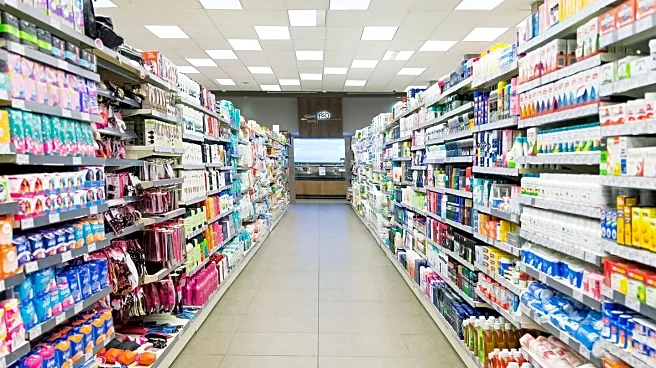What's Happening?
The World Health Organization (WHO) and the United Nations Office on Drugs and Crime (UNODC) have released a report highlighting the threat of contaminated medicines, particularly affecting children in low-
and middle-income countries. The report reveals how criminal networks exploit regulatory gaps to introduce toxic chemicals into the pharmaceutical supply chain. It calls for coordinated efforts to address this issue, including improved regulatory frameworks and cross-border cooperation.
Why It's Important?
Contaminated medicines pose a significant public health risk, especially to vulnerable populations such as children. The report underscores the need for stronger regulatory oversight and international collaboration to prevent further incidents of contamination. Addressing this issue is crucial to ensuring the safety and integrity of the global pharmaceutical supply chain and protecting patients from preventable harm.
What's Next?
The report calls for urgent global action to close regulatory gaps and strengthen oversight of excipient supply chains. WHO and UNODC urge member states and stakeholders to take decisive action to prevent further tragedies. Enhanced legal and operational frameworks are needed to address the deliberate falsification of pharmaceutical excipients and improve investigation and prosecutorial capacity.









